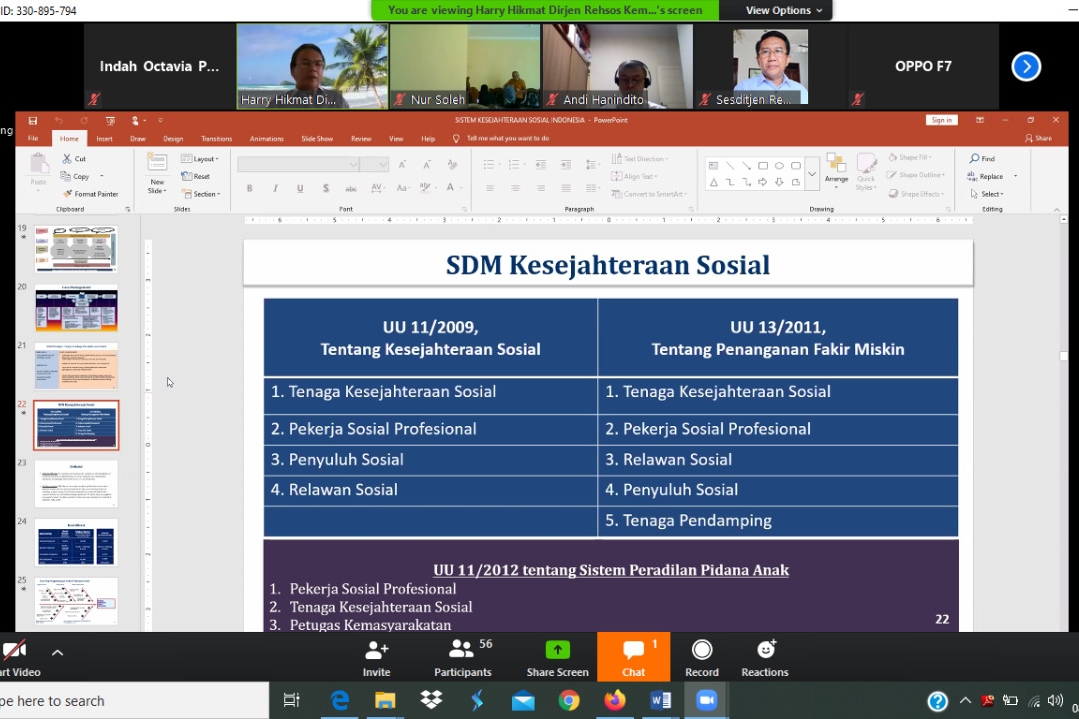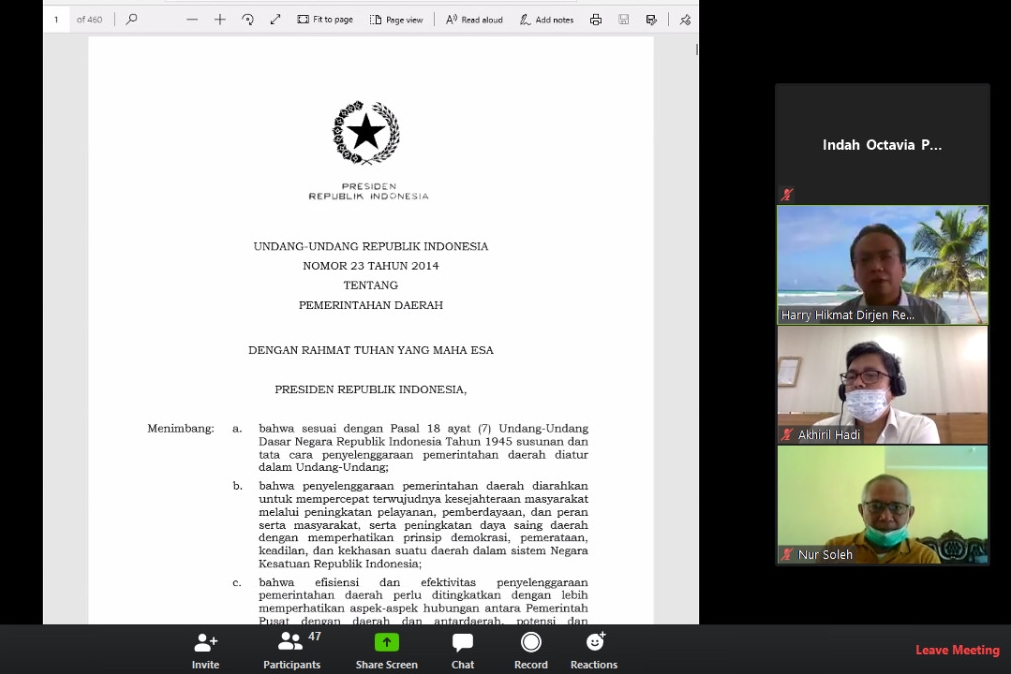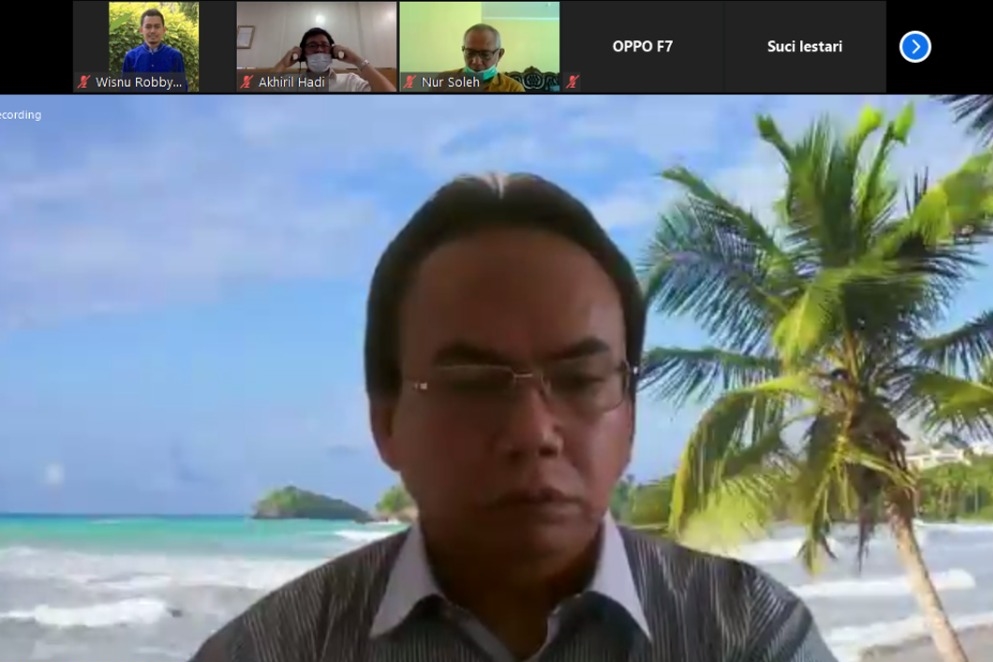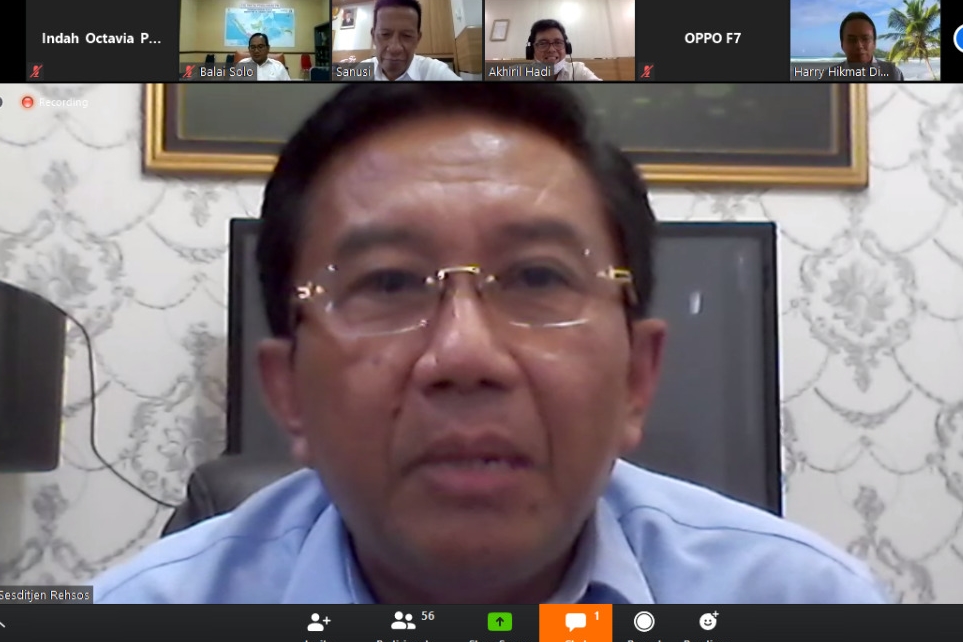JAKARTA (April 8th 2020) - Director General of Social Rehabilitation, Harry Hikmat held a brainstorming with all levels in the Directorate of Social Rehabilitation regarding the Draft Government Regulation (RPP) on Social Rehabilitation. This is a step in regulatory reform within the Directorate General of Social Rehabilitation to further regulate the implementation of article 12 of Law Number 14 of 2019 concerning Social Workers.
On this occasion, the Director General for Social Rehabilitation also asked for assistance from the Head of the Legal Bureau, Sanusi in the preparation of the RPP by the team. This RPP is also expected to be able to accommodate the duties and functions of the Ministry of Social Affairs, especially the Directorate General of Social Rehabilitation and the role of Social Workers (Peksos) in social rehabilitation services. Therefore, a team will be formed to formulate substantive policy directions.
In the first session of drafting the RPP on Social Rehabilitation, the Director General of Social Rehabilitation conveyed the need for an overview of social rehabilitation because regulations are policies that involve leaders. "Regarding the concept of basic social services and advanced social services, it needs to be understood in a concurrent framework," said the Director General of Social Rehabilitation.
In social rehabilitation services as well, the Director General for Social Rehabilitation said that we need to study deeper to determine the standard of basic and advanced services clearly. Determination of service time is not temporary, but with an on off system, depending on the assessment, level of vulnerability, service patterns, interventions and therapies needed.
In addition, the Director General of Social Rehabilitation revealed that social services agency with a family-based concept is the first and foremost. Secretary of the Directorate General of Social Rehabilitation, Idit Supriadi Priatna, added that the RPP is also expected to become an implementing PP for social rehabilitation services.
Various inputs for the preparation of this RPP were also conveyed by the Legal Bureau, Social Welfare Polytechnic Practitioners (Poltekesos) and Directors within the Directorate General of Social Rehabilitation at this forum. These inputs include the preparation of this RPP as an opportunity for us to describe more clearly the basic and advanced social services in Indonesian style that have been mandated by Law Number 14 of 2019 concerning Social Workers. In addition, there is also a need to categorize social rehabilitation centers, for example based on the type of service.
Another input that was delivered was a continuous category to determine basic, intermediate and advanced services. It can be determined by several components such as programs, service processes, human resources and infrastructure.
Another important point conveyed by the Director General of Social Rehabilitation is to make changes in the future. Such as community base rehabilitation which can be developed by the Balai. "The RPP is intended to ensure the future orientation of social services policy," concluded the Director General of Social Rehabilitation.
 Bahasa
Bahasa
 English
English





